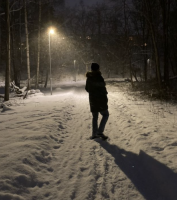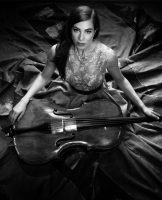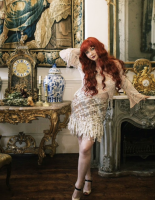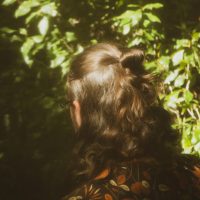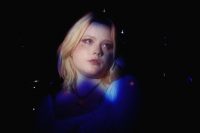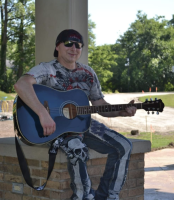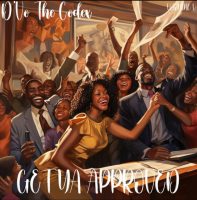Q: City pop is one of my all-time favorite genres and I was so happy to see a City pop-influenced track on here! Do you remember who or what first got you into this type of music?
JUN: Wow, it is so good to hear that you are also a City Pop fan Melissa! I actually grew up listening to City Pop. The music was being played all around home and beyond. Back when I was a kid in Japan, I started listening to all the Japanese 70’s and 80’s music cassette tapes and CDs lying around at home and got immediately captivated by these sounds. Have been digging that type of music ever since. On weekends, I’d get on my bike and go from record shop to record shop looking for more of this stuff, yeah obviously this was pre-YouTube days when finding ‘music’ was literally physical labour! Can’t believe how much easier it has become to find ‘new’ music in this and age. And thanks to this interconnected world that we live in, more and more people can appreciate city pop music outside of Japan. This is such an amazing thing.
Q: I find it fascinating that you are looking to bring a whole new genre locally to Australia- Australian Neo City Pop. What do you hope listeners take away from “Embracement”, and how do you think your local community will respond to it?
JUN: I started playing City Pop covers in gigs in various regional and metropolitan locations in Australia over a decade ago. What I realised was that this type of music, to my surprise, resonated with the Australian people too. Then, City Pop started becoming popular all over the world thanks to the internet and I then thought to myself there may be more people out there than I had thought that might appreciate my style of sound. But, I did not just want to replicate what had been done, I wanted to make something new and unique that reflected my background, the sentimentality, and the roads I had trodden. Something retro but modern, something that evokes a sense of déjà vu but at the same time creating an unheard-of sound. I also would like to be able to string together music that brings two cultures and countries together. And placing all of this on mellow grooves. These are just some of my hopes through my music-making and I hope those who live in my local community finds something endogenously local about my music and at the same time become acquainted with something nostalgically foreign.
Q: Can you walk me through your creative process in making “Embracement”?
JUN: My song-writing is decidedly retro. Not only did I listen to a lot of Japanese 70’s and 80’s music, but I also listened to a lot of Western pop, soul and jazz music from that era and world music from Hawaii and Brazil. I spent my younger days listening to artists who were known for smooth and mellow sounds like Boz Scaggs, Eric Tagg, Ned Doheny, Michael Franks, James Taylor, Leroy Hutson, Terry Callier, Earth Wind and Fire etc. So in my music making, I wanted to come up sounds that paid respect to all those forefathers of the music that I have come to love from Japan and the West and beyond, and at the same time bring in influences from Australia, where I have spent the majority of my life.
Having said this, the song ‘Embracement’ is presented with a particularly ‘Japanese’ feel in many ways. I wanted to create a soundscape featuring the motif of a young Japanese woman wearing a blue scarf out of winter. The story is intentionally left nebulous. By using Japanese-only vocals, by way of certain vocal inflections and tonality, I hope to still convey and evoke the imagery and associated scenes to listeners not familiar with Japanese. It is my hope that even through the Japanese-language vocals, in fact, I’d say particularly because it is in Japanese, that foreign listeners could appreciate the ‘feel’ and emotion behind the song and complete the story within their minds.
Q: I admire the hot pot of cultures in your music. For example, “Embracement” was recorded in both Port Fairy, Victoria and in Yokohama, Japan. In your own words, how would you describe the type of music you typically create?
JUN: As my first song to be released on streaming music platforms, I wanted the song to be both distinctively Australian at the same time. By collaborating with Australian and Japanese musicians and recording the song in both Australia and Japan, I confidently can present this song to be ‘that song‘ fitting for the establishment of the new genre which I would like to call Australian Neo City Pop. It took a whole pandemic to make this happen, but it was worth waiting!
Q: If you could collaborate with any musician, dead or alive, who would it be?
JUN: That is a hard question, Melissa! There are so many musicians I’d love to collaborate with. Is it okay if I pick several artists? I will restrict the choices to those who I have grown up listening to but have now passed on, and answer this questions in terms of artists “I wish I could have collaborated with”.
I will name two Japanese and three Western musicians. Firstly, Eiichi Ohtaki, who is often credited as one of the early creators of the City Pop style sound, I’d love to have worked with him to know more about his musical process behind it all, represented by albums like ‘A Long Vacation’ released in 1981 long hailed a classic in Japan.
Secondly, Kozo Murashita. He was a Japanese pop singer songwriter and guitarist made famous by the song ‘Hatsukoi’ in 1983. What I like about his music is he remained strictly faithful to maintaining Japanese-ness in his music making from the melodies to the lyricism. That’s something I find important in my own musicality and identity.
The three Western artists I’d like to name are, Leon Ware, Marvin Gaye and Mackey Feary. To me, Leon Ware was a master of mellow grooves and just can’t get enough of his smoothness. The song ‘I Want You’ was written by Leon Ware and one of my favourite songs recorded by Marvin Gaye. And from Marvin, I just want to be inspired by his presence and greatness. Finally, Mackey Feary. He had one of the mellowest vocals I know and his mellow and urban but still very Hawaiian melody-making has always inspired my imagination, and I’d have loved to see that at work.
Q: I’m always interested in how the Covid-19 pandemic affected artist’s creativity; for some, the isolation stunted one’s drive to make music, while others were more inspired to create. How has the pandemic affected the way you make music?
JUN: The COVID pandemic gave me a lot of ‘alone’ time that I never had before. I spent a lot of time exploring my own environment in South-West Victoria. We have some of the best coastal sceneries in Australia. That extra mind space helped me become more musically creative. And I started writing a lot more of my own materials and experimenting with new sounds. It was also during this COVID pandemic that I had the opportunity to be part of a local council-supported program that provided support for emerging local rural musicians in career development. This opportunity endowed me with additional boost to pursue a career in music.
Q: What would you like to say to your fans out there?
JUN: I just want to thank all my fans out there for supporting my music. Every time you put your hands together after a song, every thank-you from you has been a source of inspiration to become an even better musician. Thank you very much! Please be on the look-out for more “Australian Neo City Pop” tunes! I also want to thank my band members for your support, contribution, and friendship! Thanks a lot guys!
Q: Tell everyone what’s next for you! Any projects, tours in the works, etc.?
JUN: I have just come back from working on music projects in Japan for the last three months, performing gigs, appearing festivals and participating in radio shows. Of course, I have also been writing new songs too. And my next project is to get an album together in Australia with international collaboration. Lots of exciting new projects will be following on including gigs and festival appearances too so stay tuned guys!!
Photo credits: http://michellegracehunder.com
Interviewed by Melissa Cusano
FOLLOW JUN PARKER:


